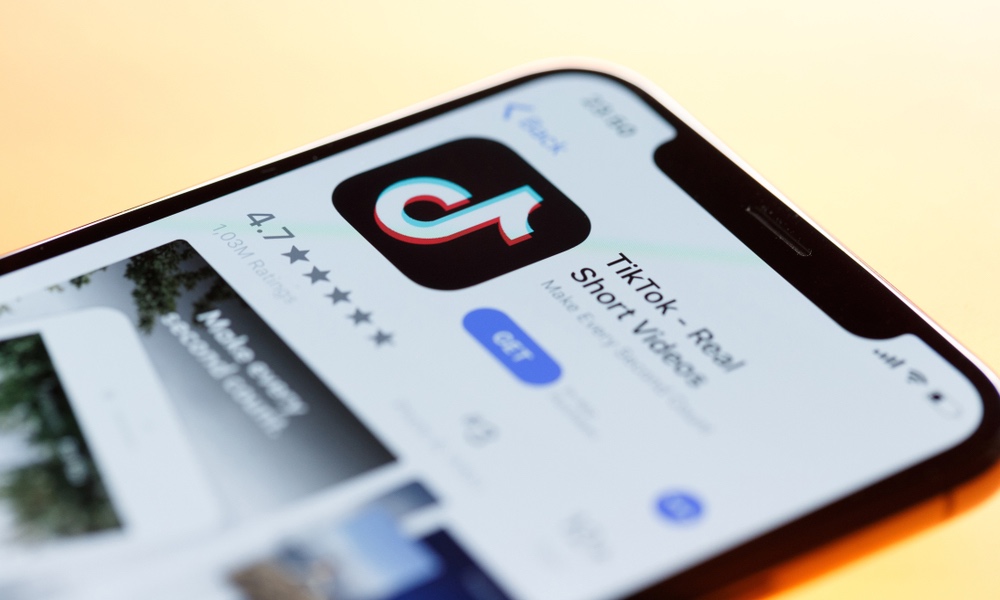You Likely Already Allowed TikTok to Collect Your Faceprint and Voiceprint
 Credit: XanderST / Shutterstock
Credit: XanderST / Shutterstock
Toggle Dark Mode
The popular video and music app TikTok recently changed its privacy policy to collect even more user data than ever before.
Now, a new update in the app’s terms and conditions states that the app may collect biometric identifiers and biometric information, including faceprints and voiceprints.
If you’ve been using TikTok over the last few days, you’ve probably seen a pop-up message asking you to accept the app’s new privacy policy. It’s very easy to quickly agree to this pop-up, but you may want to give it a closer look.
TikTok “May” Start to Collect Your Faceprint and Voiceprint
TikTok’s new policy says the app may collect “information about the images and audio that are a part of your User Content, such as identifying the objects and scenery that appear, the existence and location within an image of face and body features and attributes, the nature of the audit and the text of the words spoken in your User Content.”
TikTok then explains what they will use this information for – the app may use this information to enable special video effects, content moderation, demographic classification, content, and ad recommendations.
This is the same type of data other social media platforms collect to bring a more detailed image search and to bring targeted ads to their users.
The most shocking part about this new policy comes right after, where TikTok says that it may also collect biometric identifiers and information from user content.
We may collect biometric identifiers and biometric information as defined under US laws, such as faceprints and voiceprints, from your User Content. Where required by law, we will seek any required permissions from you prior to any such collection.
Unlike the first part of the new policy, TikTok doesn’t explain why the company needs this type of data or how it will use it.
Moreover, the company only says that it’ll seek users’ permission where the law requires it, which isn’t a lot of places, to begin with. In the U.S., Illinois, Washington, California, Texas, and New York have laws to protect biometric privacy.
And although many other states started to propose biometric legislation, TikTok may not ask users’ permission in other states.
TikTok Doesn’t Have Much to Say
After this privacy policy update, TechCrunch reached out to TikTok for more information. A TikTok spokesperson didn’t offer more details about the reason behind this update, and instead gave a vague answer:
“As part of our ongoing commitment to transparency, we recently updated our Privacy Policy to provide more clarity on the information we may collect.”
This isn’t the first time TikTok’s had problems because of the data it collects. Just last year, the U.S. government tried to ban both TikTok and WeChat because of the possibility that these apps were sharing information with the Chinese government.
Likewise, earlier this year, a report said that TikTok was facing a landmark case over allegations that the app was collecting data from over 3.5 million kids under the age of 12 illegally.






